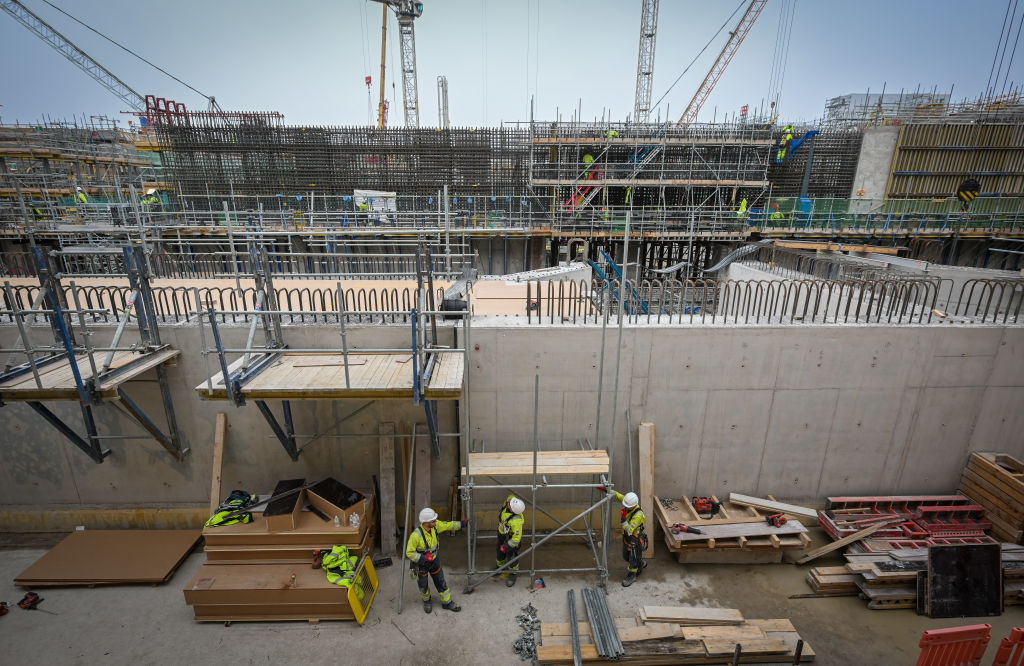
In his Budget on 15 March, Jeremy Hunt announced that nuclear would be redefined as a “green” energy in the UK and supported by a new government-funded agency, Great British Nuclear (GBN). The programme, the Chancellor expanded, will support new nuclear builds, with a particular focus on small modular reactors. And today, in its long-touted “Green Day” announcements, the government has named Simon Bowen as interim chairman of GBN, and Gwen Parry-Jones as interim chief executive officer. GBN’s “first job”, the government said in a press release, will be “to launch a new competition to select the best Small Modular Reactor technologies… for development by autumn”.
For staff in the industry, it is a welcome step, which should mean more jobs with long-term security. As part of our series speaking to workers on the “front line” of the transition to net zero, Spotlight spoke to Ritchard Grant, a shift manager at the Hartlepool nuclear power station.
As a teenager Ritchard had planned on a career in medicine, but in the event he signed up to do an engineering degree at Nottingham Trent University through clearing. It was the right choice in hindsight. “I finished pretty much the top of the year with a first-class degree, not bad for something you weren’t really planning on doing,” he told Spotlight from Hartlepool over the phone.
Ritchard’s journey took another turn when a planned course placement in Germany fell through and he applied to do a year at Hartlepool power station. He fell for the town, on the coast of Co Durham, and its people, and after graduation he took the first opportunity to come back. By last December he had been working at the power station for 18 years.
In his current role as a shift manager, Ritchard’s first task of the day is to review what needs to be prioritised in technical maintenance. “You’ve got 40- to 60-year-old technology that you’re working with day in, day out. So, spares can be an issue,” he said.
[See also: Nuclear power is just a slow and expensive distraction]
It’s challenges that motivate him. “You can come into a shift where there’s a number of issues to resolve, and [get] that satisfaction of leaving with the plant back in its top state,” he said. “If you imagine having an old fashioned car – you see some of them and they’re beautiful, but there’s a lot of work goes into that.”
Every six months the reactors need to be refuelled. They are powered down and around 20 of the 324 fuel rods are replaced, taking just under a day to complete – during which time the station is disconnected from the grid. The station is also powered down for an inspection every three years and the equipment is examined to ensure everything is as it should be.
Working in an industry that is heavily regulated to ensure safety means there is also a lot of work to support staff and meet regulatory requirements, Ritchard explains. Safety has long been a source of concern about nuclear power, particularly after the disasters in 1986 at Chernobyl in Ukraine and 2011 at Fukushima in Japan. However, Ritchard feels the public perception has shifted over time. “When I first arrived here, there were people who were vocal about not wanting nuclear and there were ones who were supportive. Now, I can honestly say, it’s very rare here that you hear anything negative locally,” he said.
Part of that shift has been down to proactive outreach to the community he explains. A visitor centre at the plant was reopened recently, and there is strong interest from locals in job opportunities and apprenticeships for younger people. “It’s a massive part of people’s lives,” Ritchard said. “We have people whose parents and grandparents even worked at Hartlepool over the period that it’s been there. So that’s another nice legacy, seeing other people’s children coming through.”
Hartlepool was due to be decommissioned in March 2024, but in March 2023 it was announced that the power station will have its life extended a further two years in response to the energy crisis. The process of decommissioning will then take around five years to complete, meaning the jobs connected to the plant will carry on in one form or another during that time.
Ritchard is keen for nuclear power to continue in the north-east: “I’ve got my family all here – to try and relocate them and start again somewhere else wouldn’t be ideal. But there’s a lot of talk and a lot of excitement in the area. So I have my fingers crossed.”
This article is part of a series exploring the front line of the net-zero transition. Read more here
[See also: Is nuclear energy actually sustainable?]



